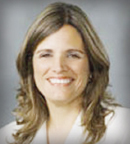In the treatment of relapsed or refractory multiple myeloma, chimeric antigen receptor (CAR) T-cell therapies with unique characteristics, still targeting B-cell maturation antigen (BCMA), are looking promising. At the 2020 American Society of Hematology (ASH) Annual Meeting & Exposition, investigators reported strong clinical activity in the first-in-human study of an allogeneic “off-the-shelf” CAR T-cell therapy,1 whereas other researchers predicted improved durability with bb21217, which enriches for memory-like T cells.2
Off-the-Shelf CAR T-Cell Therapy
Investigators of the UNIVERSAL trial reported that the ALLO-715/ALLO-647 construct was well tolerated at all dose levels. Encouraging dose-dependent activity was observed in heavily pretreated patients with relapsed or refractory disease.1
“ALLO-715 shows evidence of clinical activity in the allogeneic setting. Our results demonstrate the feasibility of off-the-shelf CAR T-cell therapy in myeloma,” said Sham Mailankody, MBBS, of the Cellular Therapeutics Center at Memorial Sloan Kettering Cancer Center, New York.

Sham Mailankody, MBBS
“In this first report of an allogeneic anti-BCMA CAR T-cell therapy, nearly 90% of patients were treated within 5 days of enrollment, without needing bridging therapy,” he added.
Autologous cell therapy targeting BCMA has demonstrated unprecedented efficacy, but logistics, wait time, and the need for bridging therapy may limit access to this treatment. Allogeneic CAR T-cell constructs have advantages: minimal delay, the potential to treat all eligible patients without the need for bridging therapy, scalable manufacturing with less product variability, and the possibility of repeat dosing, Dr. Mailankody pointed out.
ALLO-715 is a genetically modified anti-BCMA allogeneic CAR T-cell product in which the T-cell receptor alpha constant gene is disrupted to reduce the risk of graft-vs-host disease. In addition, the CD52 gene is disrupted to permit the use of ALLO-647, an anti-CD52 monoclonal antibody, for selective and prolonged host lymphodepletion.
About the Study
The study was an open-label, phase I trial in 35 adults with relapsed or refractory myeloma who have received three or more prior lines of therapy (median of five). A total of 94% of patients were “penta-exposed,” nearly half had high-risk cytogenetics, and 23% had extramedullary disease.
Patients underwent lymphodepletion followed by a single infusion of ALLO-715 at one of four dose levels: 40, 160, 320, and 480 x 106 CAR-positive T cells. Several lymphodepletion regimens were used that incorporated fludarabine, cyclophosphamide, and ALLO-647. The current efficacy analysis is based on 26 patients followed for a median of 3.2 months.
Dose-Dependent Anticancer Activity
The best clinical activity was observed among the 10 patients treated with an ALLO-715 dose of 320 x 106 cells (dose level 3). A total of 6 of 10 (60%) recipients of this dose responded, and 4 (40%) achieved at least a very good partial response. Of the six with at least a very good partial response, five have been assessed for minimal residual disease (MRD), and all were negative, Dr. Mailankody reported.
Higher cell doses were associated with increasing response rates, better allogeneic CAR T-cell expansion, and longer persistence. Investigators have begun to treat at only dose level 4 (480 x 106 cells).
Case Example
“I want to focus on one patient, to highlight the potential of this platform in myeloma,” Dr. Mailankody said. The patient was a 71-year-old man who had received nine prior lines of therapy, including an experimental anti-BCMA antibody. He was treated at dose level 3, and his course was notable for the occurrence of grade 1 cytokine-release syndrome.
The patient achieved at least a very good partial response on day 14, which by day 28 had deepened to a stringent complete response. Robust and early expansion of ALLO-715 was observed and with longer follow-up a low level of persistent T cells.
“The patient’s response is ongoing at more than 6 months. He’s clinically doing very well and is back at work,” Dr. Mailankody reported.
Safety
The treatment was well tolerated across all dose levels. There were no cases of graft-vs-host disease or neurotoxicity. Cytokine-release syndrome, all grade 1 and 2, was seen in 45% of patients, rarely requiring tocilizumab (19%) or steroids (10%). There was one death (presumably from fungal pneumonia) related to progressive myeloma and the conditioning regimen with cyclophosphamide and ALLO-647. Enrollment is ongoing in cohorts with higher doses of ALLO-715 (480 x 106 CAR-positive T cells) and ALLO-647 (90 mg).
CRB-402 Study of bb21217
In the phase I CRB-402 study of bb21217, the response rate at the recommended phase II dose was 84%, with the median duration of response now 17 months across doses and predicted to be even longer at higher doses, according to Melissa Alsina, MD, of Moffitt Cancer Center Bone Marrow Transplant and Cellular Immunotherapy Program, Tampa, Florida.2

Melissa Alsina, MD
These findings are “consistent with the mechanistic hypothesis that enriching drug product for memory-like T cells may translate to improved durability of response,” Dr. Alsina said.
The bb21217 construct is an anti-BCMA CAR T cell that uses the same CAR molecule as idecabtagene vicleucel (bb2121) but is cultured with the PI3K inhibitor bb007 to enrich the product for memory-like T cells, thereby reducing the proportion of highly differentiated or senescent T cells.
“CAR T cells enriched for this phenotype may persist and function for longer than nonenriched CAR T cells. Persistence of functional CAR T cells after infusion may be one determinant of duration of response,” she said.
The 69 patients in the study had received a median of six prior regimens; 80% were double-refractory, and 64% were triple-refractory. Patients were treated in escalating doses of 150 to 450 x 106 cells.
At a follow-up ranging from 1 to 35 months (median, 6 months), the tumor response was 68%, ranging from 43% to 83%, depending on the dose. A very good partial response or better was observed in 25%, and a complete or stringent complete response was achieved by 29% of patients. All complete responders became MRD-negative, and most patients in partial response were also MRD-negative.
Higher doses appear to be associated with better responses. This is reflected by the cohort of expansion patients enrolled at the 450 x 106 cell dose level after a change in the manufacturing process. In those 29 patients, the response rate was 84%, and 32% were complete responses. Of note, all-grade adverse events and cytokine-release syndrome were similar between the two manufacturing processes.
Memory-Like T Cells and Persistence
“Our hypothesis was that enriching CAR T cells for memory-like T cells would make them persist longer and that would translate into better duration of response. Although follow-up is short, we were encouraged to see that the median duration of response was 17 months, and when we look at it by dose, we have not met the median response duration for the 300- and 450-dose cohorts,” Dr. Alsina said.
KEY POINTS
- Anti-BCMA CAR T-cell products with novel characteristics show promise in relapsed or refractory myeloma.
- One is an off-the-shelf allogeneic construct that will bypass the need for bridging therapy and could be dosed repeatedly.
- Another is bb21217, which is like bb2121, but is enriched for memory-like T-cells and contains a PIK3CA inhibitor.
- The hope is that these agents will elicit strong responses with greater durability than is achieved with previous anti-BCMA CAR T-cell therapies.
Patients with a higher proportion of memory-like T cells also had significantly better peak expansion. Sustained responses were more likely to reflect a product enriched for naive gene signatures and depleted of effector gene signatures vs patients without sustained responses.
Cytopenias were common and not dose related. The median time to recovery of grade 3 or 4 neutropenia and thrombocytopenia was around 2 months. Grade 3 or 4 infection was observed in 26%. Neurotoxicity was rare and mostly mild.
Cytokine-release syndrome occurred in 70% of patients, which was grade 1 or 2 for all but three patients. Two patients died within 8 weeks of infusion due to cytokine-release syndrome; one had neurotoxicity and the other had cardiopulmonary complications. The target dose of 450 x 106 CAR-positive T cells has been selected for dose expansion.
DISCLOSURE: Dr. Mailankody has received honoraria from Physician Education Resource and Weber Shandwick and has received institutional research funding from Allogene, Bristol Myers Squibb, Janssen Oncology, Juno Therapeutics, and Takeda. Dr. Alsina has received honoraria from Janssen, Celgene, and Amgen; has served on a speakers bureau for Janssen and Amgen; has served as a consultant for Celgene and Bristol Myers Squibb; and has received research funding from Bristol Myers Squibb.
REFERENCES
1. Mailankody S, Matous JV, Liedtke M, et al: Universal: An allogeneic first-in-human study of the anti-BCMA ALLO-715 and the anti-CD52 ALLO-647 in relapsed/refractory multiple myeloma. 2020 ASH Annual Meeting & Exposition. Abstract 129. Presented December 5, 2020.
2. Alsina M, Shah N, Raje NS, et al: Updated results from the phase I CRB-402 study of anti-BCMA CAR-T cell therapy bb21217 in patients with relapsed and refractory multiple myeloma: Correlation of expansion and duration of response with T cell phenotypes. 2020 ASH Annual Meeting & Exposition. Abstract 130. Presented December 5, 2020.

